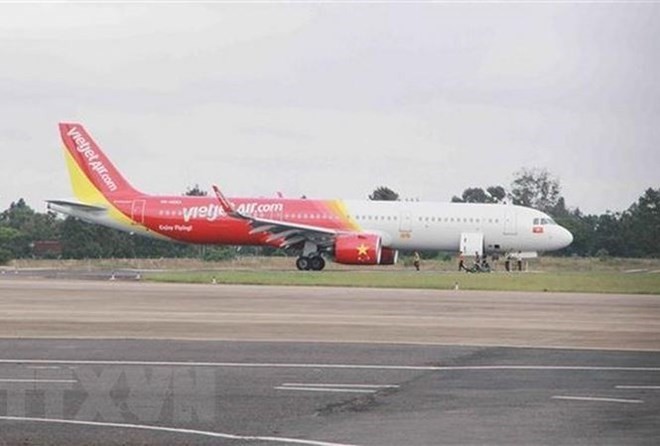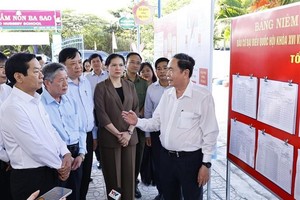
The teams will be responsible for both ground and in-flight examinations that cover all aspects of the airline’s operation. They will check Vietjet Air’s fleet of aircraft and in-flight operation, and examine how the carrier prepares and plans for each flight.
The teams will also supervise the airline’s ground services and inspect how it maintains sufficient personnel for aircraft maintenance, conducts flight training for the pilots and ensures in-flight safety.
After January 15, if Vietjet Air passes all required checks and meets all requirements for flight safety, the supervision will be removed. Otherwise, the CAAV will extend the supervision to the second phase, according to CAAV Director Dinh Viet Thang.
The authority will also develop a backup plan for passenger transportation during the upcoming Tet holiday (traditional lunar New Year) in case Vietjet Air is not allowed to increase holiday flights.
According to the Ministry of Transport, there have been seven aviation incidents involving Vietjet Air in only the final quarter of 2018, five of which were due to technical problems while errors by its staff were blamed for the rest.
On November 29, Flight VJ356 of Vietjet Air from Ho Chi Minh City encountered a late-night landing problem at Buon Ma Thuot Airport. Its nose wheels remained in place after touching the runway, but later they burst while the aircraft was still moving. The plane managed to come to a safe halt and the cabin crew help all the 207 passengers get out to safety. Some passengers suffered from minor injuries.
In the most recently incident, the plane performing Flight VJ689 landed in a wrong runway at Cam Ranh International Airport in the south-central province of Khanh Hoa at noon December 25.
The teams will also supervise the airline’s ground services and inspect how it maintains sufficient personnel for aircraft maintenance, conducts flight training for the pilots and ensures in-flight safety.
After January 15, if Vietjet Air passes all required checks and meets all requirements for flight safety, the supervision will be removed. Otherwise, the CAAV will extend the supervision to the second phase, according to CAAV Director Dinh Viet Thang.
The authority will also develop a backup plan for passenger transportation during the upcoming Tet holiday (traditional lunar New Year) in case Vietjet Air is not allowed to increase holiday flights.
According to the Ministry of Transport, there have been seven aviation incidents involving Vietjet Air in only the final quarter of 2018, five of which were due to technical problems while errors by its staff were blamed for the rest.
On November 29, Flight VJ356 of Vietjet Air from Ho Chi Minh City encountered a late-night landing problem at Buon Ma Thuot Airport. Its nose wheels remained in place after touching the runway, but later they burst while the aircraft was still moving. The plane managed to come to a safe halt and the cabin crew help all the 207 passengers get out to safety. Some passengers suffered from minor injuries.
In the most recently incident, the plane performing Flight VJ689 landed in a wrong runway at Cam Ranh International Airport in the south-central province of Khanh Hoa at noon December 25.
























